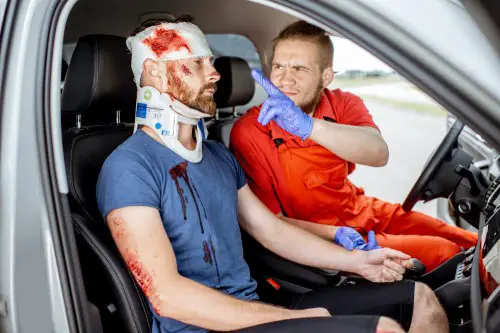Being in a car accident can be a terrifying experience. But it can get much worse if you’re an injured passenger and have no idea what to do from the beginning. This scenario usually happens if you’re involved in a rideshare accident.
In today’s world, ridesharing services have become a popular means of transportation for several people. They consider these services a more convenient approach to getting around different places. But while many believe that it’s safer, it’s still susceptible to road accidents at some point.
If you’ve been involved in a rideshare accident, you should know that it differs from a regular car accident in more ways than one.
To better understand the complexities associated with rideshare accidents, here’s a quick rundown of what to expect when you get in one.

1. Insurance Coverage
One of the essential differences between rideshare and other types of car accidents is insurance coverage.
In a rideshare crash, the injured victim can access the rideshare company’s insurance if the driver’s personal coverage can’t shoulder the damages. But to get compensation this way, you must prove that the accident occurred while the app was on and a trip had been accepted, or the passenger was in the vehicle already.
Meanwhile, in a regular car accident, the injured party can recover compensation from the at-fault driver’s car insurance policy based on the minimum requirements set by the state.
For example, if you’re from Pennsylvania, the insurance coverage for bodily injury liability is USD$30,000 per accident, USD$15,000 per person, and USD$5,000 for property damage liability.
That’s just one of the differences in how coverage works in rideshare and other types of car accidents. If this confuses you, working with a ride share accident injury lawyer can help. They will assist you in navigating insurance claims to ensure you get compensated for damages. Since ridesharing companies have a team of insurance adjusters and lawyers who will protect their interests, you also need a legal professional to back you up.
2. Timing
If you’ve been in a rideshare accident, you may file a claim to get compensation for minor and severe injuries. But your ability to receive benefits from the rideshare company may be affected by the timing of the accident.
In a regular car crash, the time when it happened doesn’t affect the availability of compensation to victims. But in a rideshare accident, it does.
For example, the insurance company will deny your claims if the accident occurred while the driver was doing errands in their vehicles or getting ready to take rides but failed to turn on the app. Only when it’s proven that a passenger has gotten in while the app was on can the company be held liable.
3. Manner Of Operation
Rideshare accidents usually happen due to issues associated with the drivers’ capabilities. Generally, rideshare companies provide loose requirements for prospective drivers. For instance, they only require their drivers to be 21 years old or above, have a valid driver’s license, have one to three years of experience, have proof of insurance and registration, and own a four-wheel vehicle.
Contrast this to those hired by taxicab companies. The requirements include rigorous background checks and testing before an applicant can be employed as a driver. This makes them less likely to get involved in accidents since so much more rides on their capabilities when it comes to serving customers.
Moreover, rideshare companies like Uber and Lyft usually argue that their drivers aren’t regular employees but independent contractors. Because of this, not all insurance policies and benefits are available to drivers involved in a rideshare accident. For example, the rideshare company can only provide additional insurance to the injured party if certain conditions are met, such as when the app is on, or the driver was taking a passenger in the vehicle when the crash happened.
Considering these things, you will need some guidance in proving that your accident is a covered incident. Fortunately, you can take alternate paths to get the compensation you want.
Know That You Always Have Options
After knowing all this, you might be wondering if you can stay protected at all when you choose ridesharing. The good news is that it’s always possible to get the compensation you need on different terms.
Working with a lawyer that specializes in this field truly helps. The more you understand how rideshare accidents work, the better your odds.






